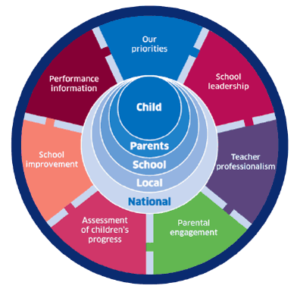Children are leading their learning at Colquhoun Park EYC
A vote was cast and animals won. We are now 3 weeks into learning all about the animal kingdom. Here’s a snapshot of what we have been up to.
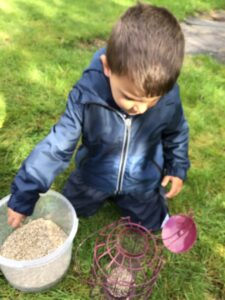
How to feed the birds
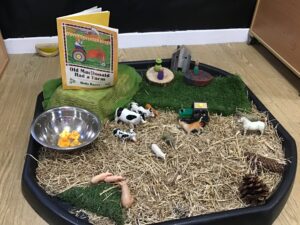
Animals that live on a farm
Natural Habitats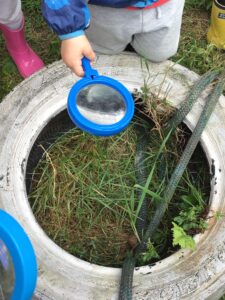
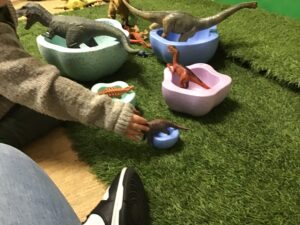 Animals that no longer live
Animals that no longer live
If you would like to see more please take a look at our learning walls in the playroom where you can find and follow our whole journey!!
Mini Explorers
Our introduction programme to Mini Explorers kicked off. Children had the opportunity to take part in a variety of different experiences over a 2 week period such as;
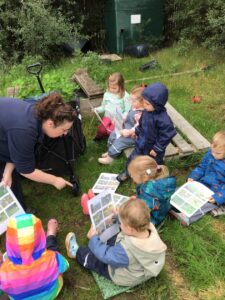
Risky business – children learn to identify and manage risk.
Den building – working together children collect resources to build dens.
Bug hunt – children use visual prompts to find bugs in and around our grounds
Clay modelling – children made bugs and insects out of clay
The Animal man came to visit centre. All children were invited in to take part in this show. Children had the opportunity to learn, see and even touch the
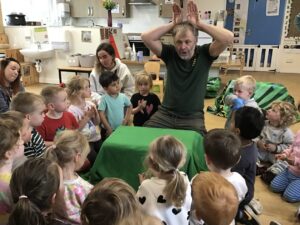
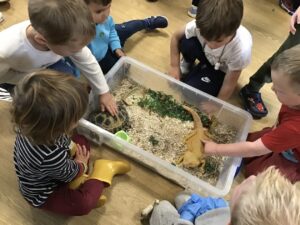 animals. We got to see a chicken called Nando, a tortoise called Michelle, snakes, cockroaches, leaf insects, and even a tarantula!
animals. We got to see a chicken called Nando, a tortoise called Michelle, snakes, cockroaches, leaf insects, and even a tarantula! 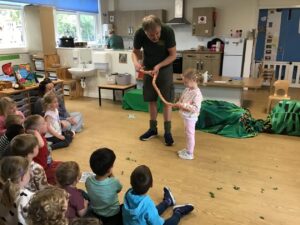
We were all super brave and loved every minute! This experience was only made possible thanks to our families contributions to the children’s fund.
For more information on our children’s fund, how to make your contribution and what its used for please click on the link. Children Fund Letter
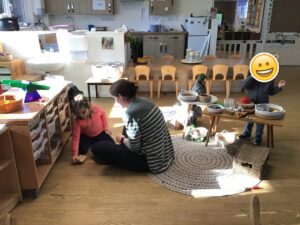 Stay & Play sessions
Stay & Play sessions
Big thank you to all the families who joined us in centre for a morning/afternoon of play. We we delighted to have you and our children are always so excited when their adult comes to visit.
Upcoming Events calendar
October 2025
Wednesday 1st – Book Bug (5pm – 5:30pm) – Bookbug sessions explore stories, song and rhyme with our children and their families.
Week commencing 13th – Ante-pre progress meetings – Parents/carers will be invited into centre using a booking system to discuss their child’s progress.
Week commencing 20th – 2yrs progress meetings – Parents/carers will be invited into centre using a booking system to discuss their child’s progress.
Saturday 25th October – Gardening Day (11am to 2pm) – Children and families throughout our school community are invited along to take part in our gardening day, helping to get our early years centre and school ready for the season ahead.
Week commencing 27th – Sponsored Broom Zoom – Children will raise money for the children’s fund by zooming round our grounds on broomsticks!
Week commencing 27th October – Introductory tours (3:15pm onwards, by appointment only). Prospective new P1 families are given the opportunity to arrange a visit to our school and take part in a tour around our building.
CPPS P1 families invite for tour
Spooky scavenger hunt 30th (5pm-6pm) – Children and families are invited to take part in our spooky scavenger hunt around school, we use our torches to search high and low for our Halloween surprises.
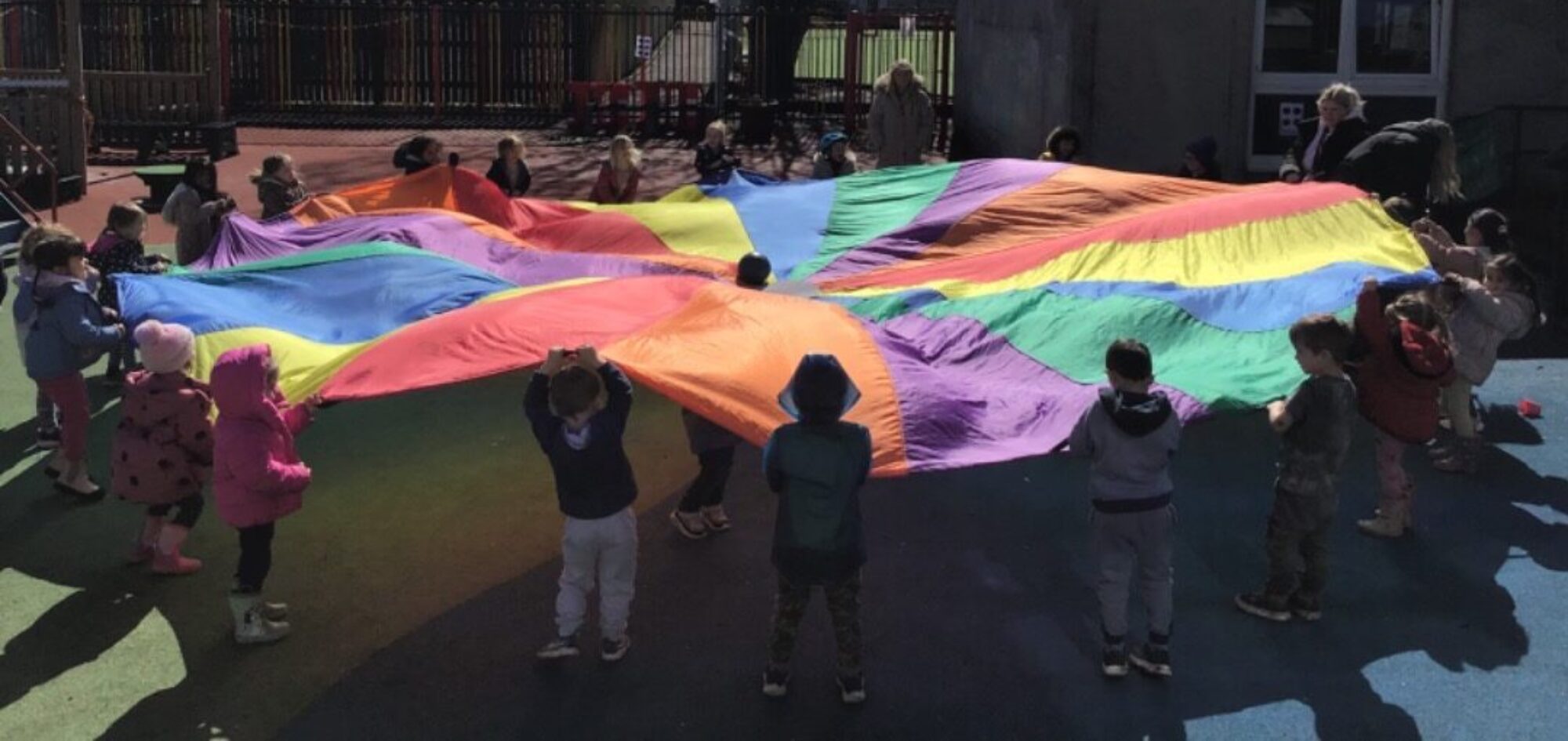
 We will be running our interactive family workshops on
We will be running our interactive family workshops on